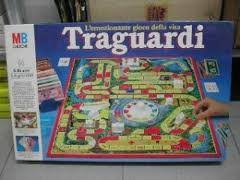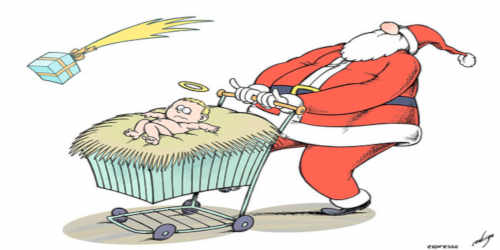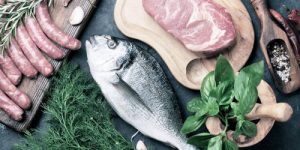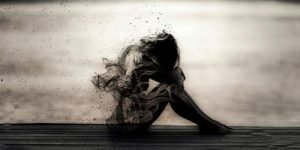A beautiful reflection on the meaning of life in our day and the meaning that Christmas takes on at this difficult historical moment of transition.
A lucid and down-to-earth analysis of how much meaning is being lost behind materialistic dreams that have nothing to do with the deep needs of the soul, which are quite different.
"Christmas: the advertisement Of the toys raging. Among the many, ready to saturate the imagination of the little ones, one caught my eye: a board game, classic goose game style, but this time you play at life. Intrigued, I discovered it has existed for quite a while. The first version is from the 1980s and is called Goals: Whoever accumulates the most money for the country mansion or billionaires' house wins. 1980s: era following the years of lead, new consumerist dream and the goal in life is to become rich.

2019, almost 2020: gone are the goals written in big letters on the game box. Swept away by economic and political crises, the dissolution of dreams of wellness. Perhaps swept away already by their very being goals: the word has more to do with achievements than with the values that animate life, drive the journey, and are rooted in ideals.
In this time, which from instability something should have learned, the game of life still has the same ending: the one who has accumulated the most wins money. Will this really be the ending to be desired? The right motive for the well-being of the human subject? There is no era that has so fear of living like our own. People are afraid to choose, to believe, to act. They back down even when they want something.
And the ill-being increases: depression, anxiety, addiction, obesity, cancer, autoimmune and neurodegenerative diseases. Where has the courage to live gone? Let's be honest: none of our grandparents had the opportunities for listening and information that we have. None had the freedom that we have. Even rampant psychologizing, in every sphere and at every opportunity, should have provided extra tools to get better.
Instead, we are worse off: in fact, we are better off, we eat more, even too much, we live longer, but we are more frightened and more unhappy, less able to take hold of life and ride it. The heroes of life are fewer and fewer. The victims more and more. Could it be that in freedom without a sense of limit there is a devious implication, which is to lose desire? In the 1950s a prophetic Jacques Lacan spoke of the death of the Father as the death of desire and faith.
It takes a Father to lay the border, not father-master of the past-Saturn eating his children-but Father serving the function that demarcates the course of the river, so that the water flows away, restrained at the sides, by the banks. Thus it cannot overflow and get lost in the surrounding land, but must go on, from the source to the mouth where there, yes, it can finally get lost.
If this is the fate of Fathers, what about Mothers? Carl Gustav Jung was perhaps the last Western bastion of the Great Mother archetype. Lou Andreas Salome echoed with revolutionary writings on the power of the Female, on her deepest freedom beyond the Law of Society: Mary, Antigone, Magdalene. Women capable of going beyond the constituted rule to follow the law of the heart.
Without bothering with myth or religion, just think of our grandmothers: how much strength in the ordinary, how much freedom in the often secret but unwavering feeling. The daughters of those women still knew how to fight, right or wrong, for an ideal. So did the sons of those fathers. They knew how to take risks, they knew how to dream.
They were ready to leave without knowing if they would return, and the women knew to wait for them without knowing if they would see them again. The essence of faith was this, no matter the creed or origin. Who knows that the refugees of the world cannot, beyond the undeniable problems inherent in welcoming them, restore to the matrix of this society a little of the courage to live on the edge of dying: romantic to think that they come to bring back alive the archetype of the hero's journey.
Revolutions have always been made by aristocrats and people, that is, individuals who are noble in spirit either by lineage or by choice, but by that inner nobility united. Perhaps today, to be well, we would need. dreams and not goals, which stand to each other like nobility to business. Then money would not be an end, but a wonderful means, because revolutions must also be financed.
Someone who, for those who believe, was born in a few days of the year--which for us is zero--turned over the merchants' tables in front of the temple. So for Christmas I wish dreams and not goods."





